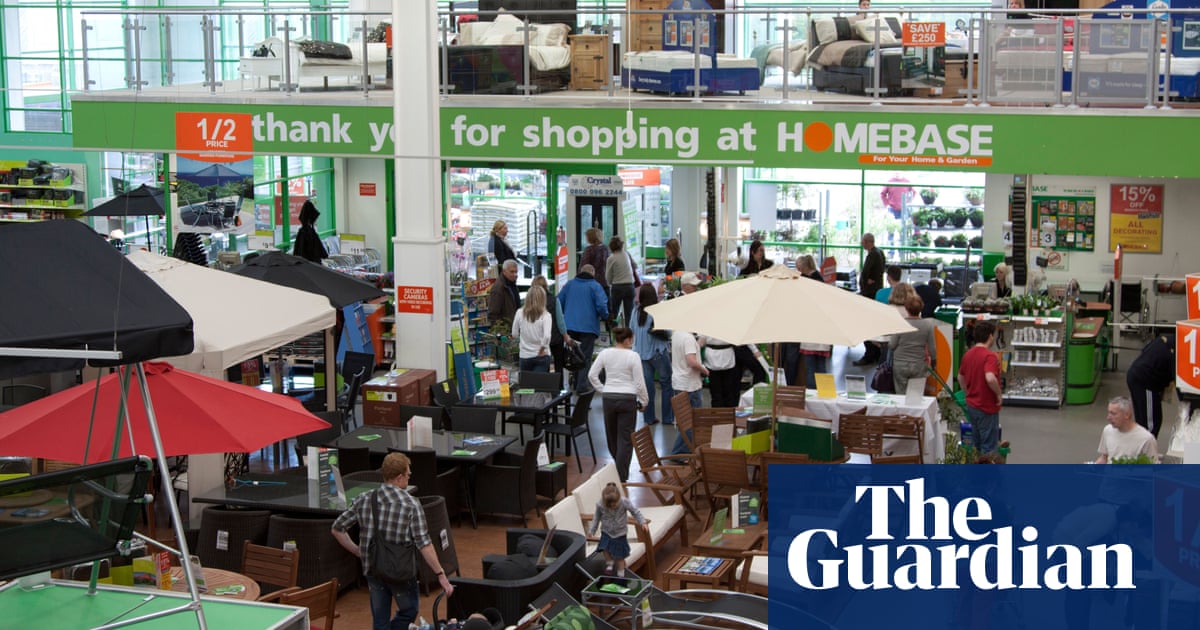Sainsbury's to Convert 10 Homebase Stores into Supermarkets

Sainsbury's, the UK's second-largest supermarket chain, has announced a £130 million investment to acquire 10 stores from Homebase and transform them into large supermarkets. This move marks a significant expansion for Sainsbury's, its biggest in over a decade, and signals the changing fortunes of these two major British retail brands.
The deal comes amid questions about the future of the DIY chain, Homebase. In a letter to suppliers, Damian McGloughlin, Homebase's managing director, acknowledged that the company was "trading behind where we planned to be" and would begin an "active sale process" to attract new investment next week.
The first of the new Sainsbury's stores is expected to open next summer, with the complete set, spread across England, Northern Ireland, and Scotland, employing 1,000 people. Homebase employees who may face redundancy will be guaranteed an interview for positions within the new Sainsbury's stores.
The planned expansion will see Sainsbury's opening as many large stores next year as it did in the previous five years combined. Simon Roberts, the chief executive of the Sainsbury's group, which also owns Argos and Habitat, stated that he is pushing forward with expansion as the group's food business "continues to go from strength to strength."
"We have the best combination of value and quality in the market, and that's winning us customers from all our key competitors and driving consistent growth in volume market share. We want to build on this momentum, which is why we are growing our supermarket footprint," Roberts said.
This expansion comes five years after Sainsbury's closed 15 large supermarkets and numerous Argos stores due to the growing popularity of discounters Aldi and Lidl, putting pressure on traditional supermarket chains. Tesco, Asda, Morrisons, and Waitrose also faced similar pressures, with the rise of online shopping further impacting sales.
Sainsbury's and Tesco have responded to this competition by price-matching Aldi on key products while offering a wider range of products, appealing loyalty card discounts, and more enticing treats all under one roof. Sainsbury's broad product range has also positioned them to benefit from shoppers trading up to more expensive foods as the financial pressure eases and consumers opt for home-cooked meals over dining out.
Homebase, currently owned by Hilco, previously attempted to sell the company four years ago and reportedly put it back on the market this spring. The DIY chain is currently in final negotiations to extend a lending facility of up to £95 million with Wells Fargo, which is due to expire in December.
Homebase has faced a tumultuous history since its inception in 1979 by Sainsbury's, only to be sold off in 2006. The sale of the 10 stores will shrink its footprint to just over 130 outlets, roughly half the 250 it held when Hilco acquired it for £1 from the Australian retail group Wesfarmers in 2018. Wesfarmers' ownership lasted only two years, regarded by some as one of the most disastrous retail takeovers in recent history.
McGloughlin stated to suppliers that the sale of the 10 stores is "part of our longer term plans to transform Homebase and return to profitability." This was initially reported by the trade journal Gardenforum. Homebase's parent group, HHGL, recorded an £85 million loss in the year ending January 2023, compared to a profit of nearly £56 million the previous year, following an 11% decline in sales to £701 million.
The DIY industry experienced a surge during the Covid-19 pandemic but is now facing sluggish sales as households cut back on major renovations due to rising energy, food, and mortgage costs, as well as increased interest rates on loans.
The following shops are being purchased from Homebase by Sainsbury's:
[Insert a list of the stores here.]





